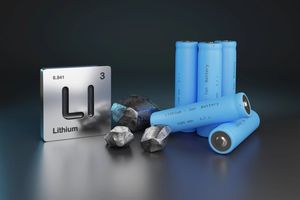Operations, Manufacturing and Supply Chain Sustainability Efforts
SOURCE: Herbalife Nutrition
DESCRIPTION:
For more than 40 years, Herbalife Nutrition has been a leader in providing nutrition products that support people’s health and wellness goals. They are also on a mission to ensure their products are manufactured responsibly and sustainably.
To make a big and bold impact on the earth takes significant proactive initiatives, which is why their commitment to protect and safeguard the planet sits at the heart of their sourcing and manufacturing efforts, guided by their core value to always do what’s right.
They work to ensure that their products are sourced, manufactured, and distributed in the most sustainable way possible:
Harnessing the power of plants
With the global population expected to cross 9 billion by 2050, demand is expected to increase 74 percent for daily protein servings. As the world is more focused on climate change, people are looking for alternatives to animal-based proteins that contribute significantly to greenhouse gas (GHG) emissions. Plant-based proteins are considerably more efficient to grow, using less water and emitting less carbon, and producing more protein per acre than beef, eggs, or milk. These are among the main reasons that Herbalife Nutrition has been harnessing the power of plants for over 40 years.
Eighty-four percent of protein in Herbalife Nutrition products is plant-based, with primary ingredients being soy, pea, rice, and quinoa. Soy is the number-one ingredient in many of our products, including most varieties of Formula 1, our flagship product. Soy is one of the only complete plant-based proteins since it contains all nine essential amino acids that our bodies cannot produce on their own. Soy is also significantly more efficient to grow, using less water and emitting less carbon, and producing more protein per acre than beef, eggs, or milk.
Herbalife Nutrition’s annual soy usage per year is roughly 30K metric tons and is expected to grow at an estimated rate of 6-8 percent annually. They work with soy suppliers committed to sourcing responsibly. They have the goal to source only soy ingredients and palm oil from companies certified by the Roundtable on Responsible Soy (RTRS) and the Roundtable on Sustainable Palm Oil (RSPO), respectively.
Supply chain responsibility
Originally Herbalife Nutrition outsourced the manufacturing and distribution of most of our products. To garner more control and general oversight, they decided to bring many of these functions in-house. They created a program they call “Seed to Feed,” which tracks where their ingredients are planted, where they are raised, and how they are shipped to their manufacturing facilities. Herbalife Nutrition’s commitment to transparent operations extends to their suppliers. They have stringent standards for supplier selection and only work with those who share their ideals for product quality while leaving a minimal environmental impact.
Working with their technical, scientific, engineering, and operational experts, they have creatively found ways to improve their sourcing. They look for opportunities to limit their environmental footprint and use technology in their manufacturing that allows for significantly faster production that uses less electricity than the industry standard. In fact, as part of their 50 by 50 campaign, they have committed to achieving net-zero emissions by 2050.
The role of packaging
While packaging plays a critical role in keeping products fresh and safe, it also poses environmental challenges, especially in countries where the waste-management infrastructure is underdeveloped. Reduction of packaging and waste benefits the environment, and their business in cost savings and efficiencies gained. By minimizing packaging, using recycled material, and eliminating non-recyclable material from their packaging, they will help achieve a waste-free future and help advance the circular economy.
Herbalife Nutrition is proud of their early achievements, including eliminating plastic bags in some countries, reducing excess packaging materials, and increasing post-consumer resin (PCR) – a material made from recycled plastic. They’re proud to now include 25 percent of PCR plastic in their flagship Formula 1 Healthy Meal Nutritional Shake Mix canisters in the North American region and planning to expand globally in markets where allowable over the next two years.
Smart, streamlined distribution
Their work also includes evaluating and enhancing how they distribute products to 95 countries and territories worldwide, primarily through a global distribution and logistics network. Currently, they have five manufacturing facilities, along with several trusted contract manufacturers. Combined, these manufacturing centers span four continents and empower them to meet worldwide demand. The move in recent years to vertically integrate their operations not only has ensured better product quality and cost control, but also provides them with increased opportunities to reduce the environmental impact of their manufacturing facilities.
Herbalife Nutrition primarily use ocean transport for global shipping, which has the lowest carbon footprint of any commercial transportation mode. For some routes, such as between Russia and China, they use rail given its cost-effectiveness and energy efficiency. They only use airplanes for transporting product transport in rare instances. As they work to formalize carbon reduction strategies in the future, they will be prioritizing the carbon footprint of their logistics operations to gain additional efficiencies where possible.
Read more here. This article was originally published on IAmHerbalifeNutrition.com.
KEYWORDS: Herbalife Nutrition
More News
View More




Recent Quotes
View More
Quotes delayed at least 20 minutes.
By accessing this page, you agree to the Privacy Policy and Terms Of Service.